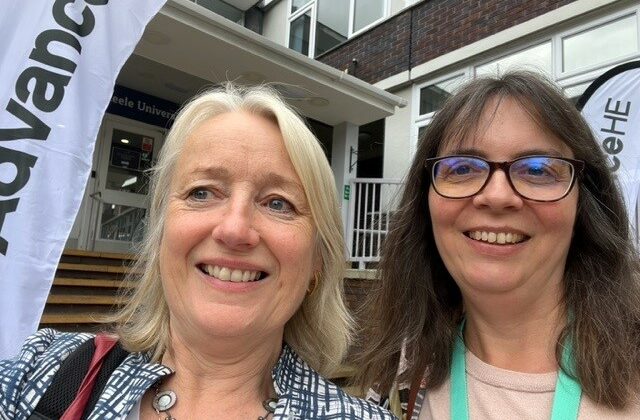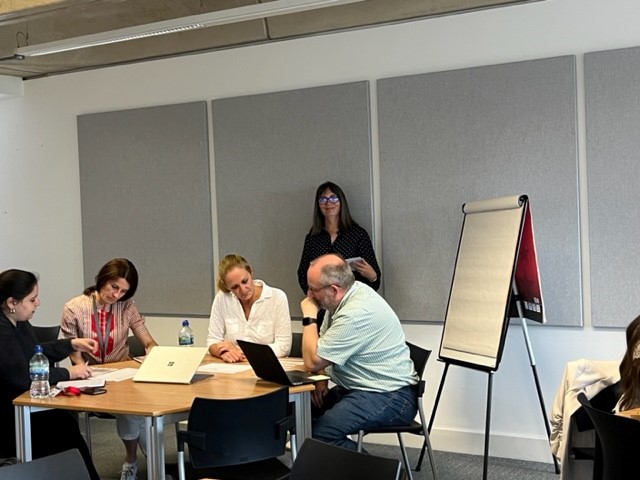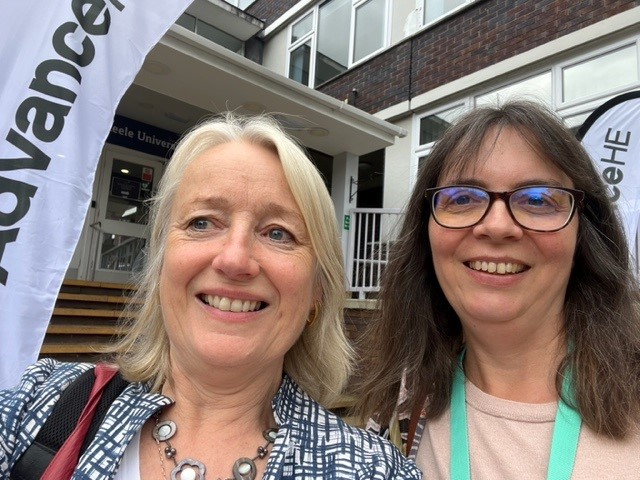By: Julia Limper, Charlie Waller Institute, j.limper@reading.ac.uk

Overview
This article discusses the integration of Self-Practice and Self-Reflection (SP/SR) into our as part of cognitive-behavioural therapy (CBT) programs. SP/SR is designed to enhance therapists’ practical skills and emotional resilience by addressing gaps in traditional training methods and helping trainees manage the emotional demands of their learning.
Objectives
The primary goal of introducing SP/SR was to deepen trainees’ understanding of CBT through reflective practices, by supporting trainees to move from rigid adherence to more flexible and competent use of CBT techniques. Additionally, the program sought to provide emotional support during the intensive training process by incorporating opportunities for reflection and normalisation of course challenges smaller groups.
Context
Self-Practice/Self-Reflection (SP/SR) is recognised as a valuable tool for acquiring and refining CBT skills, enhancing both competence and emotional resilience (Bennett-Levy et al., 2009). This approach involves practicing CBT techniques on oneself (self-practice) and then reflecting on both personal benefits and challenges, as well as potential implications for patient work (self-reflection).The approach aligns with the NHS England Curriculum for HI (high intensity) trainees, which emphasises experiential learning and self-reflection (NHS England, 2022). While longer SP/SR formats exist and offer more extensive evidence of their benefits, the shorter format used here was designed to meet the course structure’s time constraints and to lay the groundwork for trainees to continue the practice independently.
In practice, many trainees acknowledged the importance of SP/SR but found it difficult to engage with SP/SR as a solely self-directed element due to the demanding nature of their course. This reflects the broader challenges faced by trainees in intensive programs (Boud & Walker, 1998).
The course involves intensive clinical training, provided through a mixture of lectures which include practicing clinical skills through role-plays, and supervision, provided in smaller groups of a maximum of four students. The lectures allow trainees to learn core skills, whilst supervision supports refining these skills and applying them to specific patient challenges.
Implementation
To address these challenges, SP/SR was integrated into four structured supervision sessions The format included:
- Initial lecture: Introducing goals, ground rules, and safeguarding strategies.
- Four SP/SR sessions (scheduled for 1 hour and 45 minutes)
-
- Setting and discussing personal goals.
- Evaluating techniques and maintenance cycles (maps that show how the trainees beliefs and behaviours could be maintaining a challenge).
- Open discussion on selected topics related to personal or professional challenges.
- Reflecting on endings and future use of SP/SR in professional practice.
-
To support trainees, a handbook, screencasts, and ongoing supervision guidance were provided, encouraging engagement and accountability in the reflective process.
Results and impact
The feedback from trainees, gathered through an online questionnaire showed positive reception to SP/SR in terms of its impact on skill development, wellbeing, and group cohesion. The whole cohort (N=28) was asked for feedback, with 17 responses received (61% response rate).
- Around 70% agreed that SP/SR sessions contributed significantly to their growth as CBT therapists, with most others somewhat agreeing.
- 64% found the sessions beneficial for their overall wellbeing.
- 76% felt SP/SR improved their connection with peers and supervisors, fostering a greater sense of group cohesion.
In terms of session frequency, just over half of the cohort felt the number of sessions was ideal, with some wanting more opportunities to engage in the practice.
Qualitative feedback revealed that the dedicated time for SP/SR in supervision sessions was particularly appreciated. One trainee noted the value of having structured time for reflection on CBT practices, which might otherwise be neglected. Supervisors also observed that discussing SP/SR in small groups led to a deeper understanding among students and highlighted its potential to improve clinical practice.
Discussion and limitations
While SP/SR was well received by trainees, the evaluation had certain limitations, most importantly the reliance on self-reporting. The lack of objective measures of SP/SR’s direct impact on clinical practice or wellbeing leaves room for further investigation. Moreover, focusing primarily on professional self-reflection may limit its effectiveness. Expanding the approach to include reflections on both personal and professional challenges could enhance its utility (Chaddock et al., 2014).
Reflections
The introduction of SP/SR demonstrated its value in supporting both the professional development and emotional resilience of HI trainees. However, refining the programme, incorporating objective outcome measures, and addressing both personal and professional reflections may enhance its impact. Ongoing adjustments will be needed to further align SP/SR with the evolving needs of trainees.
Follow up and future directions
Future evaluations should focus on the long-term impact of SP/SR on trainees’ clinical practice and emotional well-being. Additionally, exploring how trainees continue to use SP/SR after formal training and how services can support this practice is essential. For future cohorts, a more formalised assessment process, combining both quantitative and qualitative feedback, will provide clearer insights into SP/SR’s effectiveness.
References
- Bennett-Levy, J., McManus, F., Westling, B. E., & Fennell, M. (2009). Acquiring and refining CBT skills and competencies: which training methods are perceived to be most effective? Behavioural and Cognitive Psychotherapy, 37(5), 571–583.
- Boud, D., & Walker, D. (1998). Promoting reflection in professional courses: The challenge of context. Studies in higher education, 23(2), 191–206.
- Chaddock, A., Thwaites, R., Bennett-Levy, J., & Freeston, M. H. (2014). Understanding individual differences in response to Self-Practice and Self-Reflection (SP/SR) during CBT training. The Cognitive Behaviour Therapist, 7, e14.
- NHS England (2022). Curriculum for High-Intensity CBT Trainees.
- Thwaites, R., & Bennett-Levy, J. (2014). Using Self-Practice and Self-Reflection (SP/SR) to Enhance CBT Competence and Metacompetence. How to become a more effective CBT therapist: Mastering metacompetence in clinical practice, 239–254.



